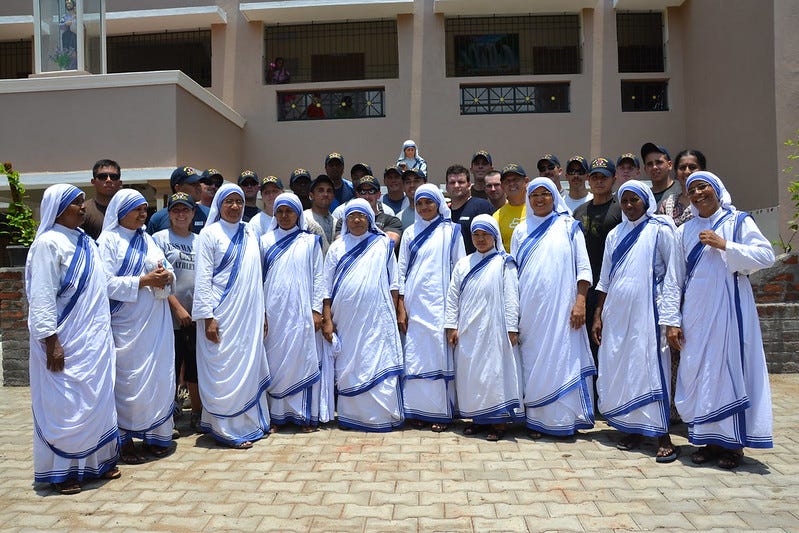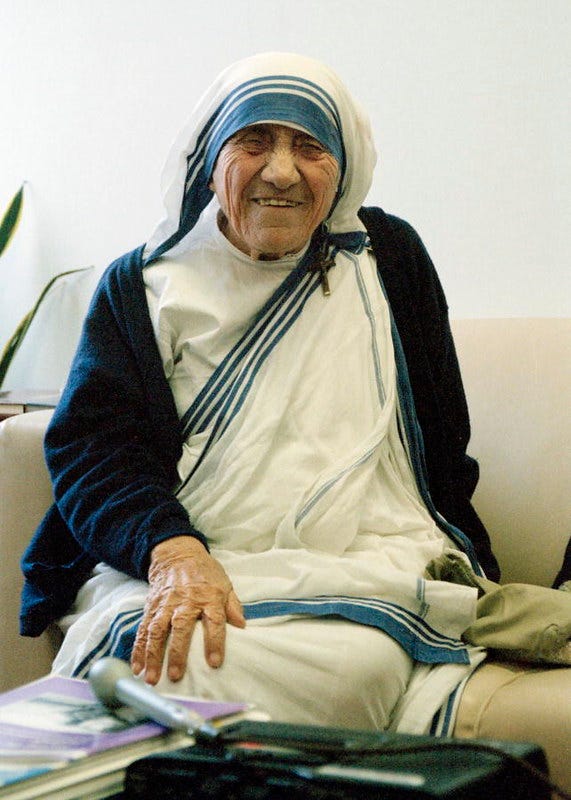The Missionaries of Charity, founded in India more than 70 years ago, are known around the world for serving the “poorest of the poor,” in the vision and charism of their foundress, St. Teresa of Kolkata.
But on Christmas Day, reports emerged that the sari-clad religious sisters have run into serious difficulties with the government of India, where the orders serves thousands of people each year in hospices, clinics, residences, and kitchens.
Those difficulties, according to Indian media reports, would make it nearly impossible for Missionaries of Charity sisters to continue working among the poor, in the very country where Mother Teresa began their mission.
What exactly happened? How did religious sisters get into political trouble? And what does that mean for India’s poor?
The Pillar explains.
So what happened?
On December 25, India’s Ministry of Home Affairs announced that the Missionaries of Charity were unable to renew the government certification that allowed them to receive foreign funding for their charitable work in India.
The government said the Missionaries of Charity’s renewal application was turned down because of “adverse inputs,” but it did not specify what that meant.
The sisters’ certification had expired in October, but was temporarily extended while they applied for recertification.
The religious order depends upon foreign contributions, which includes money sent from other regions of the order, to fund its charitable work in India. Over the past five years, the order’s Indian provinces have received more than $50 million USD in foreign funding, according to Indian media. That funding supports hospitals, shelters, and kitchens across the country, and the needs of the sisters who serve the poor.
Why weren’t the sisters approved?
That’s not entirely clear.
But earlier in December, the Missionaries of Charity were investigated for allegedly proselytizing Hindus, a crime in many parts of the country. Police are investigating the charge that Missionaries of Charity in northwestern India were requiring Hindu girls living at an orphanage to read Christian texts and recite Christian prayers against their will.
The Missionaries of Charity deny the charge, but the issue is being taken very seriously in the Indian state of Gujarat, where a controversial law requires that religious conversions be approved by a local authority. As many as half of applications to convert from Hinduism to other religions have been turned down by regional authorities in Gujarat.
There is no evidence that the Missionaries of Charity lost their foreign funding certification because of the investigation into proselytization, but some in India say it's likely they’re related.

On the other hand, the sisters weren’t the only ones to lose their foreign funding certification in recent days.
In fact, nearly 6,000 organizations in India learned last week that they had lost their foreign funding certification — more than 25% of the total number of certified organizations in the country.
Among organizations which lost their certification are the Indian Medical Association and Oxfam India, which feeds tens of thousands of people in the country, and provides housing and other kinds of humanitarian assistance, especially in areas impacted by drought and natural disasters.
Indian media say that some organizations may have seen their certifications go unrenewed because of government work stoppages during the pandemic, or because of 2020 rule changes to the country’s foreign funding laws, which prohibit organizations to give grants inside of India with money that came from outside the country. The Indian government said that more than 5,000 groups did not apply for a renewal on time.
But there is also suspicion in India that Prime Minister Narendra Modi’s government has used the certification process to target critics — especially those who seem to stand in the way of Modi’s Hindu nationalist agenda. Christians across the country have faced persecution in recent years under anti-conversion laws, and baptisms in some parts of the country take place in secret. Muslims have also faced violence and persecution in many parts of the country.
Many of the organizations which lost their certification last week were Christian or Muslim advocacy groups, according to Indian media reports.
What’s happening now? And what’s next?
There were rumors in India this week — widely repeated in the press and on social media — that the Indian government had also frozen Missionaries of Charity bank accounts. But the order says that’s not true.
Instead, the sisters say they have decided not to spend foreign contribution money in their bank accounts until the issue is resolved — presumably so that they won’t later be charged with spending money they should not have received in the first place.
Because of that, apostolates are facing a cash crunch — shelters are rationing food and other commonly distributed items, and some healthcare clinics are cutting back on non-essential services.
Some NGOs are urging foreign governments to place pressure on the Modi government to walk back restrictions on foreign contributions entirely. That move seems unlikely to be successful.
For their part, the Missionaries of Charity have said they are confident their legal problems in India can be resolved, but there is no specific appeal process available to groups which saw their certifications go unrenewed. Some groups have said they will file for a new certification, and in the meantime file for temporary permission to receive limited amounts of foreign funds.
The Missionaries of Charity have not indicated whether they will file for new certification.
In the meantime, administrators in one Indian state, Orissa, have directed that state funds should be temporarily allocated to help the Missionaries of Charity keep open their hospitals and orphanages in the state, in which at least 900 people are under the care of the sisters.





